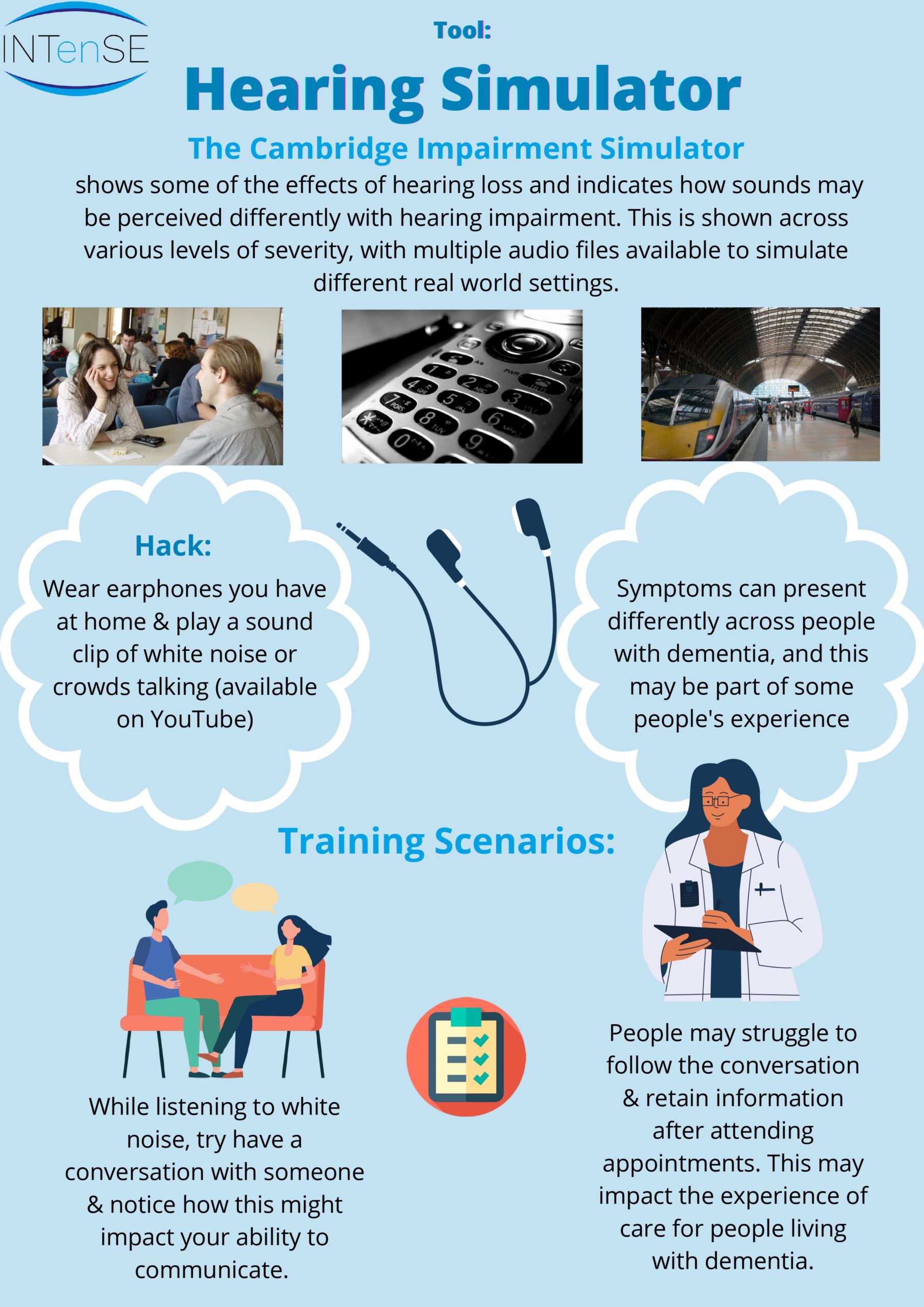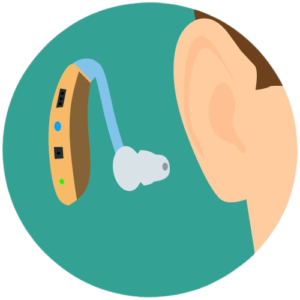This simulation shows some of the effects of hearing loss and indicates how sounds may be perceived differently with hearing impairment. This is shown across various levels of severity, with multiple audio files available to simulate different real world settings.

Here is a link to the online version of this simulator:
https://www.cambridgehearing.ca/your-hearing/hearing-loss-simulator
White noise:
Crowds talking:
You can run your own hearing loss simulator using a pair of earphones you have at home.
Put these earphones on and play a sound clip of white noise. While listening to this, try to have a conversation with someone beside you and notice how this impacts your ability to communicate.
Scenarios (that can be downloaded):
- Social interaction (presentation, scenario, role-play, small cafe noise)
- Vision and hearing simulator (presentation, scenario)
- Cognitive assessment (presentation, scenario, role descriptions, white-noise, ACE-FullVersion, ACE-Exercise, ACE-Guidilines and scoring)
- Getting around (presentation, scenario, healtcare-background-noise)
- Communication in care (presentation, scenario, white-noise, role play)
People with dementia may struggle to follow a conversation or retain information after attending appointments. In turn, this might impact the level of care provided to people living with dementia.
Having both hearing loss and dementia can impact social functioning and cause social isolation due to difficulties in communication. While dementia-related changes in the brain may alter auditory function, hearing loss can also contribute to and worsen other symptoms of dementia.
By understanding hearing loss and how it may impact people with dementia, we can make adjustments to a person’s environment that can help to manage these symptoms and support people to live well with dementia.







